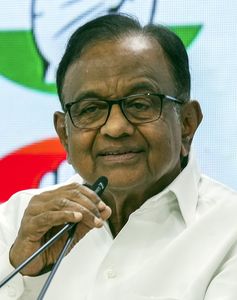A FEW WEEKS AGO, the Reserve Bank of India published an article on the economy. The authors claimed that eight crore jobs had been created in India in the last few years and “there is no jobs crisis in India”.
It was an astounding statement, especially from a cautious, conservative and politically neutral institution like the RBI. The claim was lapped up by the BJP’s leaders, including the prime minister who mentioned it in one of his speeches.
The finance minister was silent. The chief economic adviser looked away. The NITI Aayog, that often sprang up to make bizarre claims, did not make any comment. No one asked the RBI questions such as how the claim was made, what kind of jobs were created, where were the jobs and who were the beneficiaries.
The RBI’s claim and the government’s tacit endorsement ran contrary to the evidence around us:
◆ The Uttar Pradesh Police department conducted an examination to recruit 60,244 positions in the state police, mostly constables. More than 48,00,000 persons, including 16,00,000 women, wrote the examination. (The examination was cancelled after a few days).
◆ Air India wanted to fill 2,216 vacancies of ‘handyman’, a job that involved diverse repair and maintenance duties. Some 25,000 persons thronged the Mumbai airport for a walk-in interview, and police had to step in to maintain order.
◆ A private company in Gujarat sought to fill five positions; more than 1,000 persons applied.
◆ Madhya Pradesh advertised 15 low-skilled government jobs. It attracted 11,000 applicants, many of whom were postgraduates, engineers, MBAs and even one who was preparing to write an examination for the post of a judge.
The jobs crisis is best illustrated by the examinations conducted every year by the Staff Selection Commissions at the Centre and in many states. In Uttar Pradesh, an examination conducted for 7,500 posts (mostly clerical), received 24,74,030 applications.
Unemployment is, and has been for many years, a serious problem in India. Past governments acknowledged the problem. The BJP was different: it flatly denied there was a problem. On the eve of the 2014 elections to the Lok Sabha, Mr Narendra Modi promised to create two crore jobs a year. The promise, among other promises, was described as an ‘election jumla’ by no less a person than the home minister. At one point, the Prime Minister said that “frying pakoras is also a job”.
The Centre for Monitoring Indian Economy measures the unemployment situation very closely. Its latest report has estimated the all-India unemployment rate as 9.2 per cent. The Periodic Labour Force Survey conducted by the central government has thrown up some uncomfortable truths. Most Indians do not hold regular jobs; they are self-employed (57.3 per cent). Only 20.9 persons of the employed earn a regular salary. Among graduates who have attained the age of 40, the unemployment rate is 10 per cent. The least educated are the least unemployed. The only zero-unemployment group is illiterate rural women.
The cry for jobs is heard in every town and village of India. The cry was finally heard by the finance minister after her government received a hard slap from the electorate in the 2024 elections. In her budget speech on July 23, she announced three schemes to promote employment under the description ‘Employment-linked Incentive’ (ELI) scheme. In essence, the schemes incentivise employers to hire more persons, especially first-time employees. She claimed that the schemes will benefit 290 lakh persons, but there was no data to support the claim.
The ELI scheme was a copy and paste of the promise in the Congress manifesto that had offered to amend the Apprenticeship Act and provide a one-year apprenticeship to every diploma or degree holder with an annual allowance of Rs1 lakh and with the expectation of a job at the end of the period of apprenticeship. I am naturally happy that the finance minister had an opportunity to read the Congress manifesto at least after the elections and take a leaf out of the document.
I emphasise that the jobs crisis is real. The crisis is compounded by several factors. An average child spends only seven-eight years in school. Nearly one-half of the students cannot read or write a simple text in any language and they cannot do multiplication or division. They learn no skills. Jobs have to be found for such children as well as for skilled persons, graduates, postgraduates, technically qualified persons, engineers, doctors, scientists and so on. It is a gigantic task, and the government must apply itself diligently to the task. It must first shed its posture of denial. Going by the finance minister’s speech, the government seems to have, at last, acknowledged the problem.
―Chidambaram is a Rajya Sabha member and former Union finance minister.



